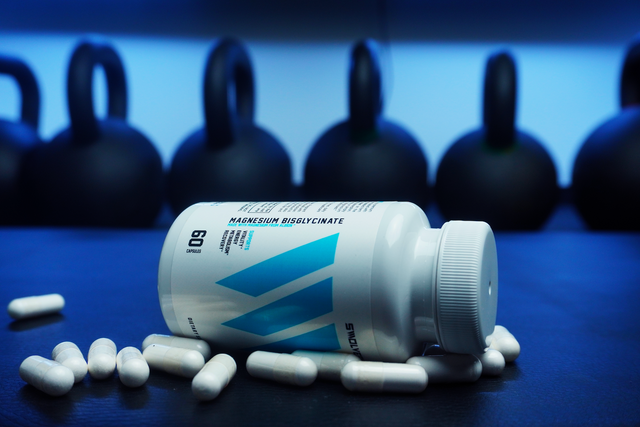From Hollywood biohackers to high-performing athletes and everyday wellness enthusiasts, peptides are having a major moment. Touted for their ability to build muscle, burn fat, enhance skin, and even boost libido, these tiny chains of amino acids are creating big buzz.
But with so many options—and conflicting advice online—it’s hard to know what’s real, what’s hype, and what’s actually safe. Are peptides legal? Are they steroids? Should you use them for performance, longevity, or both?
In this guide, we’re cutting through the confusion to give you clear, science-backed answers to the most searched peptide questions. Whether you’re curious about what Joe Rogan takes, want to increase testosterone, or just want better skin—this is your ultimate cheat sheet.
What Are Peptides and How Do They Work?
Peptides are short chains of amino acids—typically between 2 and 50—that act as biological messengers, triggering a wide range of cellular functions. They naturally occur in the body and regulate processes like hormone production, immune function, tissue repair, and metabolism (Fosgerau & Hoffmann, Drug Discovery Today, 2015).
In medical and performance settings, synthetic peptides are used to mimic or enhance these natural signals, making them valuable in everything from anti-aging to sports recovery. Once administered—most often via subcutaneous injection, but sometimes orally or topically—these peptides bind to cell surface receptors, initiating a cascade of biological effects.
Common categories of peptides and their functions include:
-
Collagen peptides – Promote joint health and skin elasticity (Proksch et al., Skin Pharmacology and Physiology, 2014).
-
Growth hormone-releasing peptides (GHRPs) – Stimulate pituitary gland activity and increase GH and IGF-1 levels, supporting muscle growth and recovery (Miljkovic et al., Endocrine Journal, 2021).
-
BPC-157 – A peptide shown to enhance gut healing, reduce inflammation, and promote tissue regeneration (Seiwerth et al., Journal of Physiology and Pharmacology, 2014).
Unlike anabolic steroids, which often flood the body with supraphysiological hormone levels, peptides work with your body’s existing systems, leading to a more targeted and often safer outcome (Wang et al., Clinical Pharmacology & Therapeutics, 2019).
However, their efficacy and safety depend on proper usage, medical supervision, and sourcing from legitimate compounding pharmacies. While some peptides are FDA-approved for specific conditions, many remain in the research phase and are not legally available for over-the-counter use.
The Truth About Peptides: Safety, Legality, and Effectiveness
Peptides have gained massive popularity in recent years for their potential benefits in everything from skin care to sports performance and anti-aging therapies. But with growing interest comes plenty of questions. Let’s break down the facts.
Are Peptides Safe During Pregnancy?
There is limited clinical data on the use of peptides during pregnancy. Most healthcare providers recommend avoiding them due to unknown risks to fetal development. According to Dr. Tara Scott in Cleveland Clinic Health Essentials, “The lack of research on peptide use in pregnant women means we must err on the side of caution” (Dr. Tara Scott, Cleveland Clinic).
Are Peptides Banned in Sports?
Yes, certain peptides are banned by the World Anti-Doping Agency (WADA). For example, growth hormone-releasing peptides (GHRPs) and IGF-1 LR3 are prohibited due to their performance-enhancing potential (WADA, 2024 Prohibited List).
Are Peptides FDA Approved?
Some peptides are FDA-approved, such as Liraglutide (Saxenda) for weight management and Bremelanotide (Vyleesi) for sexual dysfunction. However, many research peptides used in clinics are not FDA-approved and fall into a regulatory gray area (FDA, 2024).
Are Peptides Covered by Insurance?
Typically, peptides are not covered by insurance unless they are FDA-approved medications prescribed for specific conditions. Coverage is rare for compounded peptides used in functional or integrative medicine.
Are Peptides Better Than Steroids?
Peptides and steroids serve different purposes. Steroids often alter hormone levels dramatically and come with more side effects. Peptides are more targeted and generally have fewer adverse effects. Dr. William Seeds explains that peptides “offer a more physiological approach” than anabolic steroids (Dr. William Seeds, Peptide Protocols).
Are Peptides Safe?
When prescribed and monitored by a qualified practitioner, many peptides are considered safe. However, sourcing from unregulated vendors or using excessive doses increases the risk of side effects like water retention, fatigue, or joint pain (Nieman & Waller, Journal of Sports Science & Medicine, 2020).
Are Peptides Steroids?
No, peptides are not steroids. They are short chains of amino acids that can signal the body to release hormones or promote healing—distinct from the structure and function of anabolic steroids (Harvard Health Publishing).
Are Peptides Legal?
Peptides are legal when prescribed by a healthcare provider and used for medical purposes. However, unregulated peptides sold online for bodybuilding or research purposes may be illegal depending on local and federal regulations (U.S. Department of Justice, 2023).
Are Peptides Proteins?
Yes, peptides are essentially small proteins. A peptide is made of 2–50 amino acids, while proteins contain 50 or more. They serve a wide variety of biological roles in the body (Mayo Clinic).
Are Peptides Good for You?
Yes, peptides can be beneficial. They are used for muscle growth, fat loss, immune support, and skin health, depending on the type. However, benefits depend on dosage, purity, and purpose (Dr. Elizabeth Yurth, Yurth BioAge Clinic).
Are Peptides Hormones?
Not exactly. Peptides can stimulate the release of hormones, such as growth hormone or insulin, but they are not hormones themselves. Rather, they are signaling molecules that help regulate biological functions (National Institute of Health).
Are Peptides Illegal?
Some peptides are illegal for non-prescription use, particularly those used for performance enhancement or obtained from unverified sources. However, FDA-approved peptides prescribed by a licensed provider are legal in the U.S. (DEA Controlled Substances Act).
Are Peptides Natural?
Yes, many peptides are naturally occurring in the body. For example, insulin is a peptide hormone. Synthetic peptides mimic these natural versions to enhance or restore biological functions (Cleveland Clinic).
Are Peptides Good for Skin?
Absolutely. Peptides in skincare products help boost collagen production, reduce inflammation, and improve skin barrier function. According to dermatologist Dr. Whitney Bowe, “Peptides are among the most effective anti-aging ingredients” (Dr. Whitney Bowe, Dermatology Times).
Are Peptides Bad for You?
When used incorrectly—like self-injecting research peptides without supervision—peptides can pose risks. But when prescribed by a medical professional and sourced from a legitimate compounding pharmacy, they are generally well-tolerated (Johns Hopkins Medicine).
What Peptides Should I Take? A Guide to Popular Peptides and Their Benefits
Whether you’re trying to improve athletic performance, lose weight, boost testosterone, or simply improve your skin health, peptides offer a wide range of therapeutic benefits. Below is a breakdown of which peptides are commonly used for specific goals — and whether they're FDA-approved.
What Peptides Should I Take?
The peptides you should take depend on your health goals, such as:
-
Muscle gain – e.g., CJC-1295 + Ipamorelin
-
Fat loss – e.g., AOD 9604 or Tesamorelin
-
Libido support – e.g., PT-141 (Bremelanotide)
-
Skin health – e.g., Copper peptides (GHK-Cu)
-
Cognitive enhancement – e.g., Selank or Semax
Always consult a healthcare provider to determine appropriate dosage and protocols.
What Peptides Increase Testosterone?
Peptides like Gonadorelin and Kisspeptin-10 stimulate the hypothalamus and pituitary to promote natural testosterone production. Additionally, CJC-1295 and Ipamorelin may support testosterone indirectly by increasing growth hormone and IGF-1 levels (Dr. Rand McClain, HealthspanMD).
What Peptides Build Muscle?
Top peptides for muscle growth include:
-
CJC-1295 + Ipamorelin – Increases GH/IGF-1, enhancing recovery and lean mass.
-
IGF-1 LR3 – A potent peptide known to stimulate muscle cell growth.
-
MK-677 (Ibutamoren) – Technically a growth hormone secretagogue, not a peptide, but mimics GH stimulation and promotes muscle gains (Murray et al., Frontiers in Endocrinology, 2021).
What Peptides Help With Weight Loss?
-
AOD 9604 – A fragment of HGH shown to mobilize fat stores without increasing IGF-1 (Ng et al., Obesity Research & Clinical Practice, 2009).
-
Tesamorelin – FDA-approved for reducing visceral fat in HIV patients, with strong fat-burning properties (FDA, 2024).
-
5-Amino-1MQ – Promotes NAD+ activation and fat metabolism in white adipose tissue.
What Peptides Reduce Inflammation?
Peptides with anti-inflammatory effects include:
-
BPC-157 – A synthetic peptide shown to promote gut healing and tissue regeneration, and reduce systemic inflammation (Gwyer et al., Pharmacological Reports, 2022).
-
TB-500 (Thymosin Beta-4) – Supports immune modulation and injury recovery.
What Peptides Increase Muscle Mass?
In addition to CJC-1295, Ipamorelin, and IGF-1 LR3, Follistatin 344 has gained attention for its potential to inhibit myostatin, a protein that limits muscle growth (Rodriguez et al., Journal of Clinical Investigation, 2014).
What Peptides Does Joe Rogan Use?
Joe Rogan has publicly stated that he uses CJC-1295 and Ipamorelin, as well as testosterone replacement therapy (TRT), and other regenerative therapies like NAD+ IVs. These peptides help him maintain energy, recovery, and lean mass (Joe Rogan, JRE Podcast Episode #1744).
What Peptides Increase Libido?
The most popular peptide for sexual function is:
-
PT-141 (Bremelanotide) – FDA-approved for treating hypoactive sexual desire disorder (HSDD) in women. It acts directly on the melanocortin receptors in the brain (FDA, 2019).
Some users also report increased libido from CJC-1295 + Ipamorelin due to improved hormone balance and energy levels.
What Peptides Are Good for Skin?
-
GHK-Cu (Copper Peptides) – Stimulates collagen synthesis, improves elasticity, and reduces wrinkles (Pickart & Margolina, Clinics in Dermatology, 2018).
-
Matrixyl (Palmitoyl Pentapeptide) – A cosmetic peptide shown to reduce fine lines and increase skin firmness.
What Peptides Are FDA Approved?
Here are several FDA-approved peptides and their uses:
-
Liraglutide (Saxenda) – Weight loss.
-
Semaglutide (Ozempic, Wegovy) – Type 2 diabetes and obesity.
-
Tesamorelin (Egrifta) – Reducing abdominal fat in HIV patients.
-
Bremelanotide (Vyleesi) – Treating low sexual desire in premenopausal women.
All others, like CJC-1295, BPC-157, and IGF-1 LR3, are considered research peptides and are not FDA-approved for general public use (FDA Peptide Drug List, 2024).
Peptides aren’t magic—but they are a promising, science-supported tool for improving your health, recovery, and performance when used properly. Whether you're trying to optimize hormone levels, gain lean muscle, heal from injury, or slow down aging, there’s likely a peptide protocol that can support your goals.
Just remember: not all peptides are created equal, and not all are FDA-approved or safe to use without guidance. If you’re considering peptides, work with a licensed healthcare provider who understands peptide therapy, lab testing, and your specific needs.
Curious about where to start or which peptides are best for your goals? Let me know and I’ll help you build a personalized plan—or turn this guide into a shareable resource for your audience.
Find similar articles:
peptides












